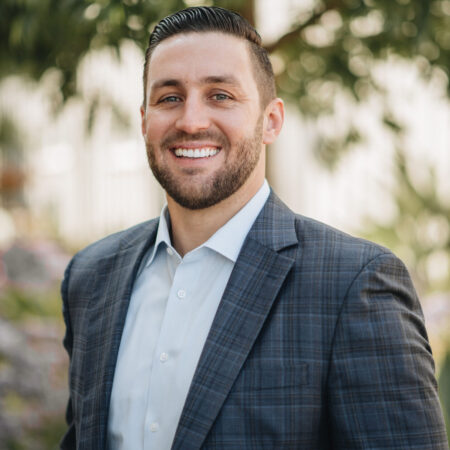Newsletter: April 2025
Spring is in full swing, and I hope you all had a blessed Easter and/or Passover surrounded by friends and family. I had the opportunity to introduce my 1.5-year-old daughter to the Easter Bunny this year—she was very excited… until she met him. Then came the terror (as most children—and some adults—tend to feel). Classic memory.
On this month I’ll cover:
- What We Look for in a Deal
- How We Source Deals
- What the Deal Process Looks Like
- Center Point Closing
What Do We Look for in a Deal?
A question we hear often is: “What exactly do you look for in a deal?” At Comfort Capital, we’ve developed a very focused approach—what we like to call sniper-like precision—when it comes to acquiring assets.
First and foremost, we target high-growth, business-friendly metros. That’s why our attention is centered on markets like Phoenix and Dallas–Fort Worth. These booming MSAs are attracting substantial investment, experiencing strong population and wage growth, and continue to face a shortage of quality workforce housing.
Once we zero in on a market, we hyper-focus on building scale there over time by acquiring additional communities. We do this for two key reasons:
- 1) Operational Efficiency – Since we in-house manage all of our communities through our property management arm, local scale enables us to share payroll and resources across multiple parks. This reduces expense ratios and allows us to build regional teams that operate more efficiently.
- 2) Exit Premiums & Market Power – Owning one high-quality park in a major metro is valuable. Owning five in the same MSA creates significant pricing leverage at exit. Large institutional buyers often pay up for portfolio scale, especially in this sector where the opportunity to buy multiple parks in one location may not come around again for 10+ years due to extreme supply constraints.
We also place a high priority on infrastructure quality. We strongly prefer communities with city services (municipal water, sewer, gas, etc.), which reduce operational risk, lower capex requirements, and are viewed more favorably by lenders compared to private utilities like septic systems and wells.
While we’ve earned our stripes upgrading parks from private to public utilities in the past, we’ve shifted our focus in recent years to higher-quality communities—those at or near full occupancy, with rents below market and clear value-add potential.
How Do We Source Deals?
We source deals through a mix of channels, including:
- Long-standing broker relationships
- Direct outreach to operators we’ve built trust with
- Personalized outreach to mom-and-pop owners
In 2024 alone, our team has made over 4,000 calls to MHC owners. As leads work their way through the funnel (see visual at right), our criteria get even more refined. We typically acquire just 2–3 deals per year, not due to a lack of opportunities—but because of how disciplined we are in selecting them.
It’s also important to note: there are only about 40,000–45,000 MHCs in the U.S., and that number is shrinking every year as parks are redeveloped into higher-density—and often less affordable—uses. That scarcity is exactly why deal sourcing is one of our biggest differentiators.
What Does the Deal Process Look Like?
If you’re reading this, there’s a good chance you’ve invested with us before. And when we announce a new deal, it might seem like it popped up out of nowhere. The truth? That deal may have been in the works for six months, a year, or even longer.
By the time you see it, we’ve likely already:
- Walked the property
- Reviewed historical financials
- Modeled projections out 10 years
- Built a relationship with the seller
Once we’re under contract, we enter a rigorous due diligence phase, where we leave no stone unturned. This includes:
- Contracting civil engineers and utility specialists to inspect infrastructure like electrical, water, sewer, and gas
- Hiring contractors to evaluate roads, common areas, and the condition of park-owned homes
- Conducting lease audits to verify accuracy of rents, terms, and tenant compliance
- Reviewing a full inventory of homes—including make, model, and unit condition
We dig deep—because we’re not just buying a piece of real estate. We’re buying a business and a community. Our due diligence ensures we understand the risk, confirm the fundamentals, and enter each investment with a plan we can execute from day one.
While we typically hold for 6–8 years, we’re always focused on communities with long-term growth potential and stable, predictable cash flow. Our process is slow, intentional, and built on relationships—and that’s by design.
Center Point is Fully Funded and Headed Into Close!
A big thank you to all of our investors who participated in Center Point MHC! We’re officially scheduled to close escrow on April 29th, and our team is working hard as we head into the final stretch and prepare for a smooth handoff. We’re incredibly excited about this community and ready to get to work on executing our business plan.
We have some exciting things happening at Comfort Capital, and I appreciate you being part of the journey. If you have questions or want to talk about today’s newsletter – schedule a call with me below!
Best,
Ben Schuster
